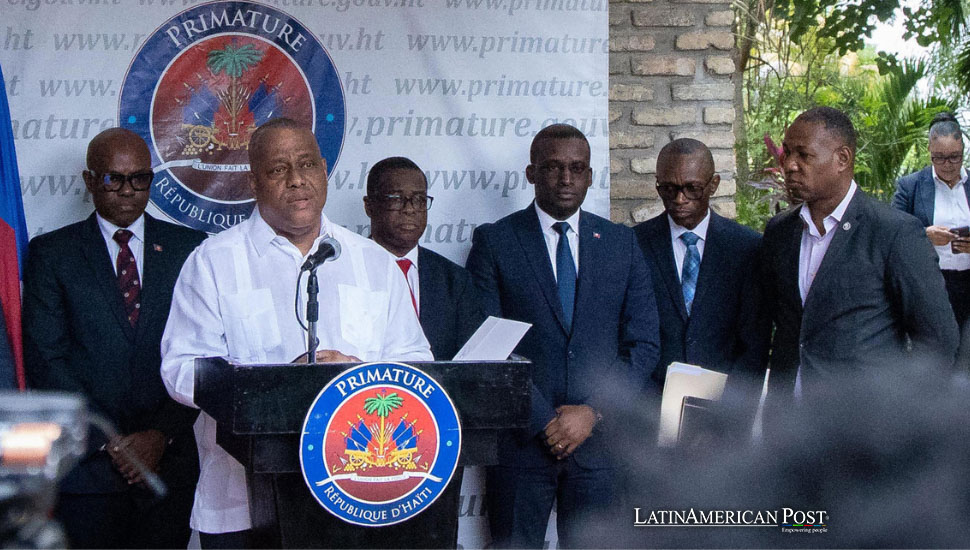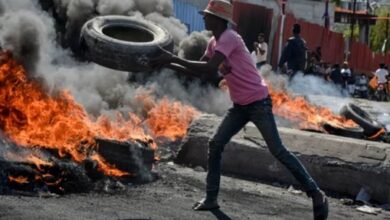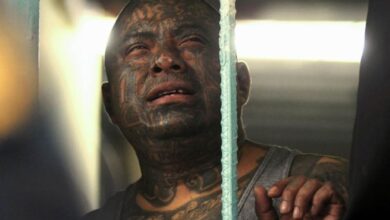U.S. Grants $110 Million to Haiti Amid Rising Gang Violence

The Biden administration allocates nearly $110 million in security and police assistance to Haiti despite months-long opposition from Republican lawmakers.
The Biden administration has announced it will provide nearly $110 million in security and police assistance to Haiti. This decision comes despite a prolonged hold on the funds by Republican lawmakers. A U.S. State Department official, speaking on background, revealed that Secretary of State Antony Blinken authorized the funds following more than 100 briefings to Congress by the State Department. The administration emphasized its commitment to working in close consultation with Congress while addressing the urgent security situation in Haiti. The funds will be used to support a range of initiatives, including the deployment of additional police officers, the training of local law enforcement, and the implementation of community-based crime prevention programs.
“The security situation in Haiti remains untenable due to the relentless violence perpetrated by these gangs, and the people of Haiti cannot afford to wait,” the State Department official emphasized. The funds, including $95 million for security mission support and $15 million allocated to the Haitian National Police to counter gang violence, are a testament to the pressing need to stabilize Haiti. Escalating gang violence has not only severely disrupted daily life, but it has also cut off food supplies and forced hundreds of thousands of people from their homes, painting a grim picture of the situation.
Senator Jim Risch, the top Republican on the Senate Foreign Relations Committee, expressed his disappointment in the Biden administration’s decision to override his hold on the funds. “The Biden Administration’s choice to override the hold I had placed on U.S. taxpayer funding for the ill-conceived Haiti MSS (Multinational Security Support Mission) is extremely disappointing,” Risch said. Risch and other Republican lawmakers have raised concerns about the transparency and effectiveness of the security mission, arguing that more details are needed before approving the funds.
The Role of the Haitian National Police
The funding aims to bolster the Haitian National Police’s efforts to combat the rampant gang violence. The Haitian National Police, despite being understaffed and under-resourced, has been at the forefront of the fight against gangs, conducting raids, making arrests, and seizing illegal weapons. This initiative is part of a broader strategy to restore order and security in the Caribbean nation. Representative Michael McCaul, the Republican chairman of the House of Representatives Foreign Affairs Committee, and Senator Risch had placed holds on the funds in March, citing the need for more details before approval.
The State Department had been engaging with Congress to obtain approval for the funds deemed essential for deploying Kenyan police in Haiti. The deployment is crucial as the situation in Haiti continues to deteriorate, with gang violence spiraling out of control and significantly impacting the country’s stability and security.
Regional Stability and International Cooperation
Haiti’s current crisis is part of a broader pattern of instability affecting several countries in Latin America and the Caribbean. The region has been grappling with various challenges, including political instability, economic hardships, and social unrest. In Venezuela, for instance, a political and economic crisis has led to widespread poverty and food shortages. In Nicaragua, political repression and human rights abuses have sparked widespread protests. In this context, the international community’s role, particularly that of the United States, is critical in providing the necessary support to restore stability and foster development.
The Biden administration’s decision to allocate funds to Haiti is not just about providing security and police assistance. It’s a clear message about the importance of international cooperation in addressing regional crises. By supporting Haiti in its efforts to combat gang violence and restore order, the U.S. is not just helping a nation in need, but it’s also contributing to the broader goal of ensuring regional stability. This stability is not just essential for fostering economic growth and development in Latin America and the Caribbean, but it’s also a testament to the power of global solidarity in times of crisis.
Congressional Opposition and Administrative Override
The leaders of the foreign relations committees in Congress have significant influence over the approval of funds for international assistance. However, the administration can override their holds if it determines that a situation warrants immediate action. In the case of Haiti, the Biden administration deemed the security crisis severe enough to proceed with the allocation of funds despite congressional opposition. This process reflects the checks and balances of the U.S. political system, where the executive branch and the legislative branch can sometimes have different priorities and perspectives.
The decision to override the holds placed by Senator Risch and Representative McCaul reflects the administration’s assessment of the urgent need for intervention in Haiti. The prolonged violence and instability have created a humanitarian crisis, necessitating immediate support to prevent further deterioration of the situation. However, the decision also carries potential risks, such as the mismanagement of funds or the exacerbation of political tensions, which the administration will need to navigate carefully.
Future Implications and Ongoing Support
The allocation of nearly $110 million in security and police assistance to Haiti is significant in addressing the country’s pressing security challenges. However, the long-term stabilization of Haiti will require sustained support and comprehensive strategies to tackle the root causes of violence and instability. This includes strengthening governance, promoting economic development, and addressing social inequities.
The international community, regional organizations, and other nations must collaborate closely to support Haiti’s recovery efforts. This includes technical assistance, financial support, and capacity-building initiatives to strengthen the country’s institutions and promote sustainable development. The Organization of American States, for instance, could play a crucial role in coordinating international efforts and providing technical expertise. The United States, as a key regional player, has a particularly important role to play in supporting Haiti’s recovery.
As Haiti navigates its complex security and socio-economic challenges, the continued engagement and support of the international community will be crucial. The Biden administration’s decision to allocate funds despite congressional opposition underscores the importance of timely and decisive action in addressing crises. However, this is just the beginning. Moving forward, sustained efforts and coordinated strategies will be essential in helping Haiti achieve lasting stability and development. This will require not just financial aid, but also technical expertise, capacity-building initiatives, and a long-term commitment to supporting Haiti’s recovery.
The Biden administration’s allocation of nearly $110 million in security and police assistance to Haiti represents a critical intervention to address the country’s severe security crisis. Despite opposition from Republican lawmakers, the administration’s decision reflects the urgent need to support Haiti in combating gang violence and restoring stability.
Also read: Vodou’s Renaissance Amid Haitian Crisis
This move also highlights the broader regional context, where international cooperation and support are essential in addressing the multifaceted challenges facing Latin America and the Caribbean. As Haiti continues to grapple with violence and instability, the ongoing engagement and assistance of the international community will be vital in fostering a more secure and prosperous future for the nation.





